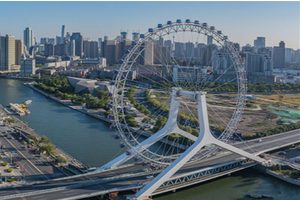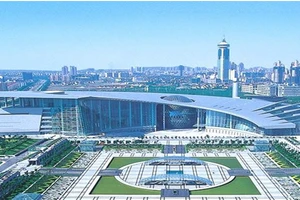Significance of ecotourism
1. Promote economic development: Eco-tourism can promote regional economic development, increase tourism revenue and promote local economic prosperity by attracting tourists. At the same time, eco-tourism can also promote the development of related industries, such as catering, accommodation and transportation, and create more employment opportunities.
2. Protecting the ecological environment: Eco-tourism emphasizes the protection and rational utilization of the natural ecological environment, and it advocates the concept of sustainable development. By developing eco-tourism, people's awareness of environmental protection can be improved, and the protection and restoration of the ecological environment can be promoted.
3. Improve the quality of tourism: Eco-tourism focuses on providing high-quality tourism experience to meet tourists' needs for natural scenery, cultural landscape and characteristic culture. Developing eco-tourism can improve the quality of tourism services and tourists' satisfaction.
4. Inheriting culture: Eco-tourism usually involves local history, culture, folk customs and other elements. By developing eco-tourism, it can promote cultural inheritance and exchange and increase tourists' understanding and understanding of local culture.
5. Improve people's livelihood: The development of eco-tourism can promote the construction of local infrastructure, improve the living standards of residents and improve people's livelihood. At the same time, eco-tourism can also help local residents increase their income and improve their quality of life.
1. The definition of ecotourism
Eco-tourism refers to tourism activities carried out in the natural environment. Its core lies in protecting the natural environment, promoting sustainable development and providing meaningful tourism experience.
2. One of the purposes: environmental protection
Eco-tourism emphasizes the protection of the natural environment in the process of tourism, and realizes the conservation and long-term utilization of natural resources through the implementation of environmental protection measures and rational management of resources.
3. Second objective: economic development
Eco-tourism can promote the growth of local economy, create employment opportunities for local residents through tourism activities, improve the quality of life and inject new impetus into local economic development.
4. The third purpose: cultural inheritance
Eco-tourism also contributes to the preservation and dissemination of local culture. Through in-depth understanding and experience of local culture, tourists can enhance their understanding and respect for culture, thus promoting cultural inheritance.
5. Goal 4: Provide a healthy travel experience.
Eco-tourism provides an environment to escape from the hustle and bustle of the city and get close to nature. Visitors can enjoy beautiful natural scenery, fresh air and plenty of sunshine, which are conducive to physical and mental health and effectively relieve the pressure of life.
To sum up, eco-tourism aims to achieve the balance between environmental protection and economic development, and at the same time promote cultural inheritance and provide a healthy tourism experience, which has far-reaching significance and value.
Prev: Daye travel agency






